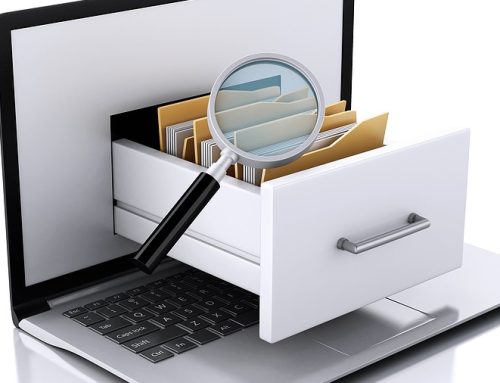Many organizations have begun to realize the benefits of information governance in improving decision making and maintaining regulatory compliance. But gaining control of data delivers a wide range of advantages for companies in multiple industries. The following reasons to implement information governance may help you see your data in a new light.
Deliver a Better Customer Experience
Customers interact with a company from multiple perspectives, from marketing to sales, development to customer service. All too often, data exists in siloes, with little communication among departments. Consequently, the customer may get conflicting messages from different sources.
Information governance reaches across departments, gathering relevant data from inventory, product support, sales specifications, customer contracts and more. As a result, the company delivers a unified message, no matter which department the customer contacts. And customers spend less time being passed from one department to another.
Streamline the Onboarding Process
Starting at a new workplace can feel overwhelming. New hires must learn the tools and procedures needed for their jobs, as well as company policies, team structures and company culture. Each new employee needs to ingest a large amount of information and know where to turn to find answers to their questions.
But processes, policies, and tools change. Subject matter experts come and go. By tagging data needed in the onboarding process, companies can ensure that new hires have up-to-date information. Employees can also find necessary data more easily and trace that data back to its current owner for more clarity.

Improve Patient Outcomes While Reducing Costs
Like other industries from manufacturing to retail, healthcare depends on data to drive decision making. But in healthcare, those decisions can significantly impact patient health. When providers have access to complete and accurate data, they can better assess the current situation and design an appropriate treatment plan.
In healthcare, data quality control can have life or death consequences. For instance, an incomplete list of current medications may result in dangerous drug interactions. Mislabeled lab tests may mean an incorrect diagnosis. On the other hand, when provider teams have timely access to all relevant data, they both improve care and drive healthcare innovation.
Boost Sales by Standardizing Data
Retailers depend on accurate product descriptions to drive online sales. But product descriptions coming from multiple vendors make it challenging to compare apples to apples.
For example, an auto parts retailer sells tools from various vendors. These vendors will have different ways of describing the same products. And data may prove incomplete or inaccurate. A retail data governance framework that emphasizes standardization of data ensures that customers find the information they need to compare products and complete a purchase.
For instance, with data standardized, the customer searching for an oil filter wrench can easily choose among multiple options. In just a few seconds, they can compare wrench type, grip range, drive style, drive size and warranty information. A quick click adds the needed item to their shopping cart.

Support Remote Work
The rise of remote work and hybrid workplaces has added significant complexity to the data landscape. Not only does remote work eliminate the traditional security perimeter, but it also greatly increases the number of data sources and data formats.
For instance, in a hybrid workplace the organization captures data from hundreds of PCs, laptops, mobile devices and the internet. It may store that data both on premises and in multiple clouds. Additionally, remote work means new types of content, such as instant messages, meeting recordings and documents from multiple collaboration tools.
To further complicate matters, users hoping to simplify the process of sharing and storing data may turn to shadow IT. This both increases liability and makes data more difficult to discover.
A quality information governance solution supports remote work by finding and mapping all data, no matter the type or where it lives. By streamlining permissions requests, it ensures that users have access to the data they need to perform their jobs. At the same time, it includes data policies and security controls designed to secure data in a cloud environment.
Explore More Reasons to Implement Information Governance
Information has the power to drive productivity and innovation, improve return on investment and even save lives. The information governance consultants at Messaging Architects will help your organization design an information governance strategy to unlock the power of your data.







